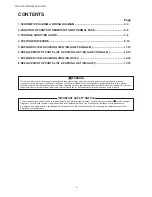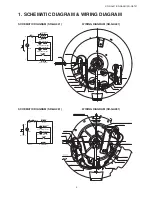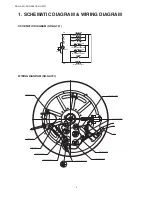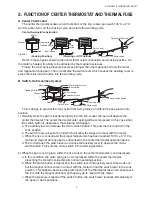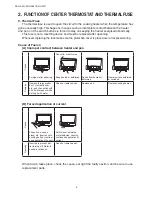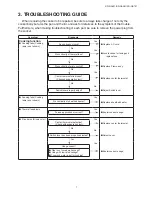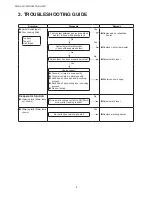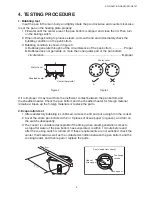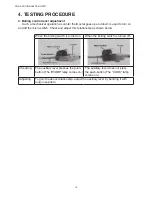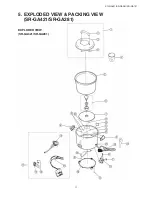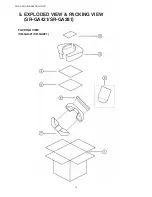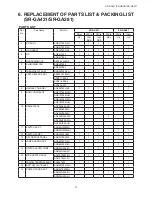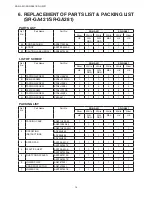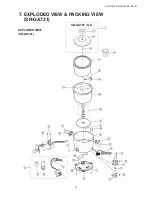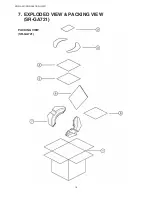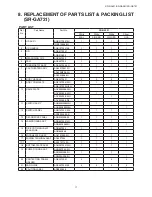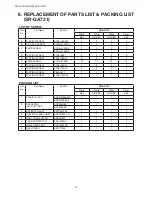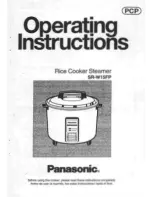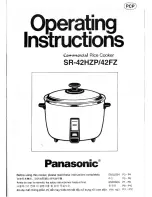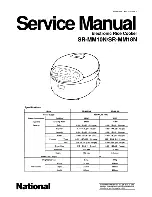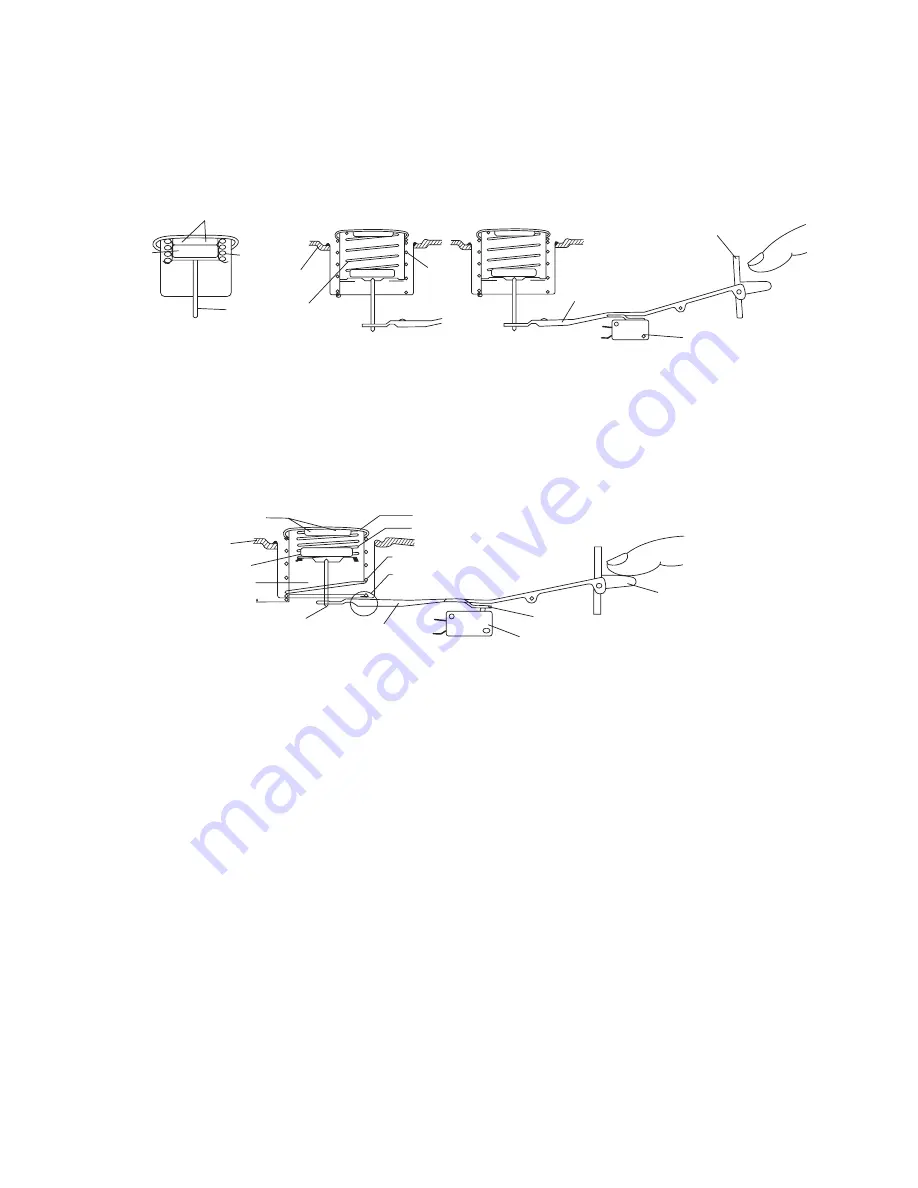
5
SR-GA421/SR-GA281/SR-GA721
2. FUNCTION OF CENTER THERMOSTAT AND THERMALFUSE
A. Center Thermostat
The center thermostat senses when the bottom of the rice cooker pan reach 134°C ± 6°C.
And it’s action turns off the cooking cycle, and starts the warming cycle.
Refer to these figures showing the center thermostat construction and cooking position. As
the metal is heated, its ability to be attracted by the magnet decreases.
Finally, the inner spring pressure becomes stronger than the magnetic pull and the metal
and magnet will pop apart. The rod activates the switch lever which causes the auxiliary lever to
press the micro-switch button into the warming cycle.
B. Switch-On Preventive System
This is design to prevent the rice cooker from being turned on without the pan placed into
position.
1) Normally when the pan is inserted properly into the rice cooker, the pan will depress the
center thermostat. The center thermostat outer spring will be compressed. In this case when
the switch button is depressed, the following will happen:
a. The auxiliary lever will release the micro-switch button. This puts the micro-switch in the
cook position.
b. The switch lever will push the rod which will allow the magnet to meet with the metal.
c. When the rice is cooked and the proper temperature has been reached 134°C ± 6°C, the
metal and magnet will pop apart as described in the center thermostat operation above.
d. The rod will push the switch lever and cause the auxiliary lever to depress the micro-
switch button. This puts the micro-switch in the warming position.
2) When the pan is not in place within the rice cooker, the center thermostat is not depressed.
a. In this condition, the outer spring is not compressed within the center thermostat
preventing the metal from reaching its normal operating position.
b. When the switch button is depressed, the switch lever and auxiliary lever work as above
but the magnet cannot come in contact with the metal to hold the switch lever in the cook
position. This happens because the switch lever hits the thermostat case and cannot push
the rod, with the magnet attached, all they way up to meet with the metal.
c. When the pressure is taken off the switch button, the switch lever releases immediately to
the open or warm positions.
Metal
Magnet
Inner spring
Cooking heater
Rod
10mm
Outer spring
Switch lever
Cook switch button
Micro switch
Thermostat case
Thermostat surface
Auxiliary lever
Metal
Magnet
Inner spring
Cooking heater
Rod Inner spring
Outer
spring
Switch lever
Cook switch button
Micro switch
NC
C
Center thermostat construction
(Cooking Position)
(Warming or Off Position)
Figure 1


